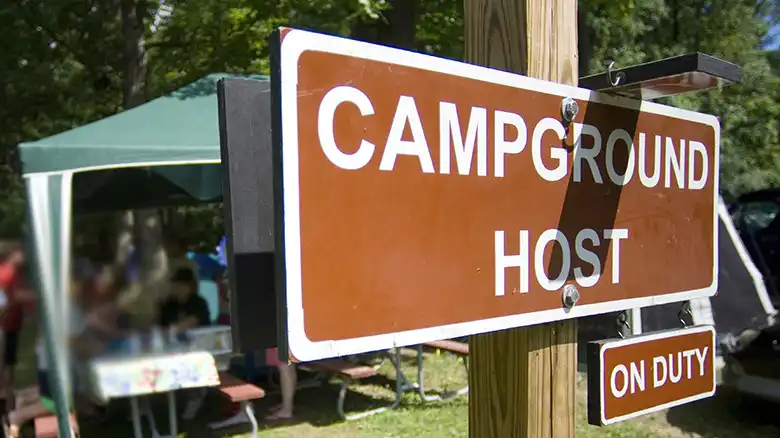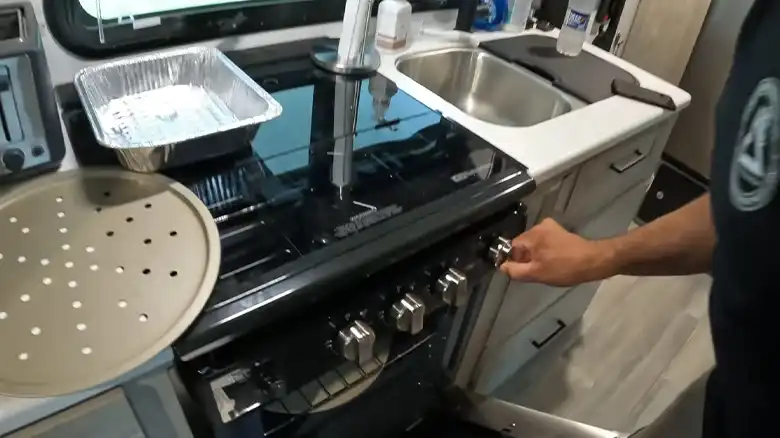After extensive travels in my RV, I’ve personally experienced the challenges surrounding RV depreciation. This concern affects seasoned enthusiasts and newcomers to the world of recreational vehicles.
In straightforward terms, the answer to the pivotal question, “Do RVs Depreciate in Value?” is an unequivocal yes. Much like any other vehicle, RVs undergo a steady loss of value over time, presenting a quandary for those who take the leap into RV ownership.
Wondering about the solution to RV depreciation? In this article, I’ll explore RV depreciation intricacies, discuss issues it presents, and offer steps to minimize it. Whether you’re a seasoned RVer or a newbie, understanding RV depreciation is essential for a successful journey.
If you want to protect your RV’s value and enjoy worry-free adventures, this article is your guide. Join me on the journey to master RV depreciation and make informed investment choices.

How Much Do RVs Depreciate Over Time?
Understanding RV depreciation rates is vital for buyers and owners. Let’s explore the key factors influencing these rates.
- Depreciation Over Time
RV depreciation changes over time, like any vehicle. Newer RVs depreciate more slowly. The first few years see lower rates, but as they age, value drops faster. In the first year alone, RVs can lose 20-30%.
RV depreciation rates differ based on type. Motorhomes depreciate faster than towable trailers. High-end brands hold value better than budget-friendly options. Specific model, features, and condition impact rates.
- Maintenance Matters
Maintaining your RV properly slows depreciation. Regular servicing and prompt issue resolution preserve its value. Neglecting maintenance accelerates depreciation.
Understanding these factors informs your RV investment decisions. Whether minimizing depreciation or planning resale, these insights are valuable in RV ownership.
Annual Depreciation Rates for Different RV Types
RV depreciation rates vary due to age, usage, maintenance, and market conditions. I can provide a general table, but it’s not exhaustive. I can offer you a general overview of how different types of RVs typically depreciate over time:
| RV Type | Depreciation Rate (Per Year) |
| Class A Motorhome | 10% – 25% |
| Class B Motorhome | 15% – 30% |
| Class C Motorhome | 15% – 30% |
| Travel Trailers | 10% – 20% |
| Fifth-Wheel Trailers | 10% – 20% |
| Pop-Up Campers | 10% – 20% |
These estimates are rough, and depreciation rates vary with multiple factors. For accurate, up-to-date information, consult RV industry sources or professionals. Rates can change over time and by brand.
Key Factors That Impact RV Depreciation
RV depreciation involves multiple factors. Knowing these elements aids in evaluating your investment’s future performance. Let’s break down the key factors influencing the depreciation of RVs:
- Age of the RV
Your RV’s age matters – older ones usually depreciate more. Wear and tear add up, while newer models feature advanced tech. Buying a new RV can be a wise choice to minimize depreciation.
- Type and brand of the RV
Your RV’s type, brand, and specific features influence depreciation. High-end brands hold value better, while motorhomes depreciate faster than towable trailers. The RV’s model and features also affect resale value.
- Maintenance and care
Effective maintenance and care mitigate depreciation. Regular upkeep, prompt issue resolution, and maintaining RV condition preserve its value, while neglect accelerates depreciation.
- Market demand
Market demand is crucial. High demand for an RV model can slow depreciation, while less popular models may depreciate faster.
- Mileage
As with cars, RV mileage affects depreciation. Higher mileage leads to faster depreciation. For resale, maintaining low mileage helps preserve the RV’s value.
Factors interact to decide your RV’s depreciation rate. Understanding and managing them aids informed decisions to minimize depreciation and maximize your RV investment.
Navigating the Used RV Market
When it comes to RVs, understanding the used RV market is vital for both buyers and sellers. Let’s explore the two sides of this market: buying a used RV and selling your RV.
- Why Buying Used Makes Sense
In the world of RVs, buying used is a savvy choice. New RVs are expensive, and depreciation hits hardest early on. Used RVs offer better value, often well-maintained.
Research, inspect thoroughly, and consider professional evaluation when buying a used RV. Seek the best deals without compromising safety and quality.
- Tips for Selling Your RV Successfully
For sellers, understanding the market is key to getting the best deal. A well-maintained, clean, and fairly priced RV will attract buyers. Highlight its features, and condition, and consider pre-sale servicing.
Crucially, pricing matters. Research the market for competitive pricing. Sell through dealerships, online platforms, or privately, and be ready to negotiate with all paperwork in order.
The used RV market, a dynamic space in the world of RVs, offers opportunities for both buyers and sellers, ensuring successful transactions.
Practical Tips to Reduce RV Depreciation
Preserving your RV’s value is a priority. Discover effective ways to minimize depreciation and maximize your investment.
- Choosing the Right RV
To minimize depreciation, start by selecting the right RV. Newer models depreciate more slowly. Opt for a recent model and high-quality brands, which retain their value better.
- Proper Storage
Protect your RV from depreciation with proper storage. Shelter it from harsh weather like sun, rain, and snow to slow wear and tear. An RV cover is a cost-effective alternative.
- Regular Maintenance
Preserve your RV’s value with regular maintenance. Keeping it in excellent condition, with well-maintained systems, prevents costly future repairs. Promptly addressing issues is essential.
Follow these tips to enjoy worry-free adventures and maintain your RV’s value: make smart choices, provide proper storage, and practice regular maintenance.
Frequently Asked Questions About RV Depreciation
Can I avoid RV depreciation altogether?
Unfortunately, no. All RVs experience some level of depreciation, but it can be minimized.
Do luxury RVs depreciate faster?
High-end luxury RVs often depreciate faster due to their initial high cost.
What’s the best time to buy a new RV to minimize depreciation?
Purchasing a new RV at the end of the camping season can help reduce depreciation as dealerships often offer discounts.
Is mileage a significant factor in RV depreciation?
Yes, excessive mileage can accelerate depreciation, so it’s essential to monitor your usage.
Are there any tax benefits related to RV depreciation?
In some cases, RV owners may be eligible for tax deductions; consult a tax professional for guidance.
Can RV modifications affect depreciation?
Custom modifications can impact depreciation. Some additions may add value, while others may not.
What’s the average lifespan of an RV?
RVs can last for many years if well-maintained, with some exceeding 20 years.
Is RV depreciation different from motorhome depreciation?
Motorhomes, as a specific type of RV, have their own depreciation rates, but they share common factors.
Is RV depreciation linear, or does it vary over time?
Depreciation is not linear. It’s typically steeper in the early years and levels off as the RV ages.
Can I negotiate RV depreciation with my insurance company?
Insurance providers do not typically negotiate RV depreciation, but you can explore coverage options to protect against it.
Final Thoughts on Protecting Your RV’s Value
RV depreciation is a fact, but proactive steps can minimize its impact. Whether you’re a seasoned traveler or a newbie, understanding RV depreciation is key to informed decisions. With the right knowledge and care, you can protect your cherished RV’s value, ensuring confident and unburdened adventures on the road. Safe travels!


